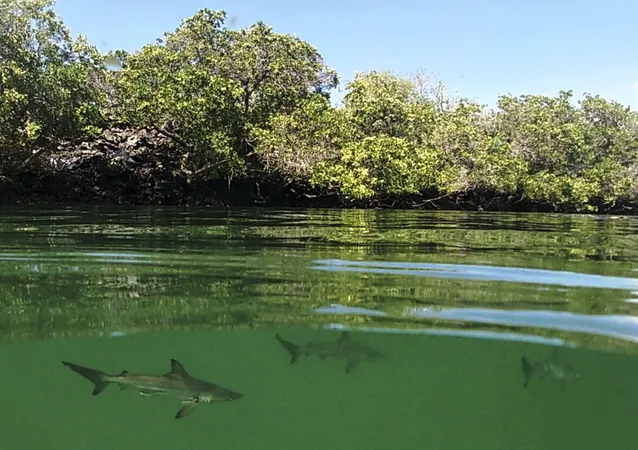
Alarming Decline in Global Freshwater Levels: Are We Facing a Water Crisis?
2024-11-18
Author: Li
Introduction
In a shocking revelation, a recent study has found that global freshwater levels have seen a steep decline since 2014. Between 2015 and 2023, researchers reported a drop of approximately 1,200 cubic kilometers in the average volume of freshwater contained in lakes, rivers, and underground aquifers. This significant depletion suggests that our planet may be entering a prolonged dry phase that threatens ecosystems and human livelihoods alike.
Impact of Increased Droughts
As droughts become more frequent and severe, the increased reliance on groundwater for agricultural and urban use is exacerbating the depletion of these essential subterranean water sources. Rain and snow, which typically serve to replenish these reserves, are struggling to keep pace with the over-extraction of groundwater. This dire situation places immense pressure on farmers and local communities, heightening risks of conflict, famine, and poverty. Alarmingly, dependence on contaminated water sources also raises the potential for disease outbreaks, revealing the intricate link between water scarcity and public health.
Research Methodology
The groundbreaking research leverages data from the Gravity Recovery and Climate Experiment (GRACE) satellites, a joint initiative between NASA and the German Aerospace Centre. These high-tech satellites monitor variations in Earth's gravity, allowing scientists to accurately track changes in water mass both above and below the surface.
Global Implications of Freshwater Shortage
The decline of freshwater resources has been particularly pronounced in South America, where severe drought conditions initially took hold. Since then, this troubling trend has spread to various regions across the globe, coinciding with heightened ocean temperatures recorded between 2014 and 2016. These environmental changes have disrupted atmospheric jet streams and altered rainfall patterns, resulting in long-term ramifications for freshwater availability. Despite some areas experiencing temporary relief from drought conditions, the overall levels of freshwater globally remain alarmingly low.
Climate Change Link
Experts are increasingly linking this catastrophic trend to global warming. As temperatures rise, the atmosphere becomes capable of holding more water vapour, which leads to more intense, but often erratic, precipitation events. These disturbances can severely disrupt natural water cycles, complicating efforts to establish a direct connection between climate change and freshwater depletion.
Need for Improved Management
Published in the esteemed journal Surveys in Geophysics, the study highlights the pressing need for improved freshwater management strategies. As water scarcity looms larger on the global stage, it is imperative that governments, communities, and environmental organizations work collaboratively to adapt to these shifting hydrological realities.
Future Perspectives
With the world on the brink of a water crisis, the stakes have never been higher. Experts warn that without immediate action, we could be facing unprecedented shortages that affect everything from agriculture to daily life. Will we be able to find sustainable solutions, or is humanity poised to enter a new era of conflict over dwindling water resources? Stay tuned, as this situation continues to evolve!

 Brasil (PT)
Brasil (PT)
 Canada (EN)
Canada (EN)
 Chile (ES)
Chile (ES)
 España (ES)
España (ES)
 France (FR)
France (FR)
 Hong Kong (EN)
Hong Kong (EN)
 Italia (IT)
Italia (IT)
 日本 (JA)
日本 (JA)
 Magyarország (HU)
Magyarország (HU)
 Norge (NO)
Norge (NO)
 Polska (PL)
Polska (PL)
 Schweiz (DE)
Schweiz (DE)
 Singapore (EN)
Singapore (EN)
 Sverige (SV)
Sverige (SV)
 Suomi (FI)
Suomi (FI)
 Türkiye (TR)
Türkiye (TR)